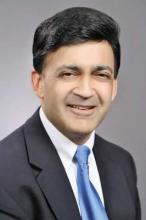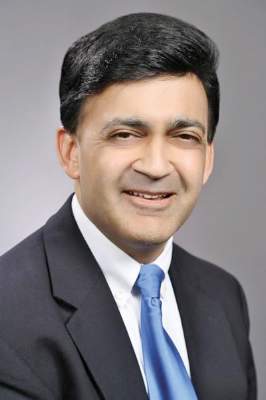User login
Utah legislators have passed a bill that would expand the practice of telemedicine by streamlining physician licensure.
The Utah House and Senate approved HB 0121, the Interstate Medical Licensure Compact, in late February. The legislation now heads to Gov. Gary Herbert for his signature.
“We’re pleased to see Utah’s state legislature be the first in the country to advance this important legislation, which will expand access to health care for so many Americans,” said Dr. Humayun J. Chaudhry, president and CEO of the Federation of State Medical Boards (FSMB), in a statement. “It is very encouraging to see the swift action being taken by Utah lawmakers, as well as recent introductions and committee hearings on the Compact in many other states.”
The FSMB House of Delegates at its 2013 annual meeting unanimously approved the development of an interstate compact to expedite medical licensure and facilitate multistate practice. Under the proposed system, states and doctors would voluntarily enter into the compact, and approved physicians would be under the jurisdiction of the state medical board in which the patient is located at the time of the medical interaction.
State boards of medicine would retain their individual authority for discipline and oversight, according to the compact. Interested physicians would also need to complete a background check, including biometric data (such as fingerprints), and pass all components of either the U.S. Medical Licensing Examination or the Comprehensive Osteopathic Medicine Licensing Examination within three attempts.
Since the model compact’s final draft was released in September 2014, 14 states have formally introduced the legislation, including Idaho, Illinois, Iowa, Maryland, Minnesota, Montana, Nebraska, Oklahoma, South Dakota, Texas, Utah, Vermont, West Virginia, and Wyoming. More than 25 medical and osteopathic boards have publicly expressed support for the model legislation, according to the FSMB.
On Twitter @legal_med
Utah legislators have passed a bill that would expand the practice of telemedicine by streamlining physician licensure.
The Utah House and Senate approved HB 0121, the Interstate Medical Licensure Compact, in late February. The legislation now heads to Gov. Gary Herbert for his signature.
“We’re pleased to see Utah’s state legislature be the first in the country to advance this important legislation, which will expand access to health care for so many Americans,” said Dr. Humayun J. Chaudhry, president and CEO of the Federation of State Medical Boards (FSMB), in a statement. “It is very encouraging to see the swift action being taken by Utah lawmakers, as well as recent introductions and committee hearings on the Compact in many other states.”
The FSMB House of Delegates at its 2013 annual meeting unanimously approved the development of an interstate compact to expedite medical licensure and facilitate multistate practice. Under the proposed system, states and doctors would voluntarily enter into the compact, and approved physicians would be under the jurisdiction of the state medical board in which the patient is located at the time of the medical interaction.
State boards of medicine would retain their individual authority for discipline and oversight, according to the compact. Interested physicians would also need to complete a background check, including biometric data (such as fingerprints), and pass all components of either the U.S. Medical Licensing Examination or the Comprehensive Osteopathic Medicine Licensing Examination within three attempts.
Since the model compact’s final draft was released in September 2014, 14 states have formally introduced the legislation, including Idaho, Illinois, Iowa, Maryland, Minnesota, Montana, Nebraska, Oklahoma, South Dakota, Texas, Utah, Vermont, West Virginia, and Wyoming. More than 25 medical and osteopathic boards have publicly expressed support for the model legislation, according to the FSMB.
On Twitter @legal_med
Utah legislators have passed a bill that would expand the practice of telemedicine by streamlining physician licensure.
The Utah House and Senate approved HB 0121, the Interstate Medical Licensure Compact, in late February. The legislation now heads to Gov. Gary Herbert for his signature.
“We’re pleased to see Utah’s state legislature be the first in the country to advance this important legislation, which will expand access to health care for so many Americans,” said Dr. Humayun J. Chaudhry, president and CEO of the Federation of State Medical Boards (FSMB), in a statement. “It is very encouraging to see the swift action being taken by Utah lawmakers, as well as recent introductions and committee hearings on the Compact in many other states.”
The FSMB House of Delegates at its 2013 annual meeting unanimously approved the development of an interstate compact to expedite medical licensure and facilitate multistate practice. Under the proposed system, states and doctors would voluntarily enter into the compact, and approved physicians would be under the jurisdiction of the state medical board in which the patient is located at the time of the medical interaction.
State boards of medicine would retain their individual authority for discipline and oversight, according to the compact. Interested physicians would also need to complete a background check, including biometric data (such as fingerprints), and pass all components of either the U.S. Medical Licensing Examination or the Comprehensive Osteopathic Medicine Licensing Examination within three attempts.
Since the model compact’s final draft was released in September 2014, 14 states have formally introduced the legislation, including Idaho, Illinois, Iowa, Maryland, Minnesota, Montana, Nebraska, Oklahoma, South Dakota, Texas, Utah, Vermont, West Virginia, and Wyoming. More than 25 medical and osteopathic boards have publicly expressed support for the model legislation, according to the FSMB.
On Twitter @legal_med

